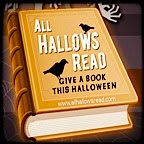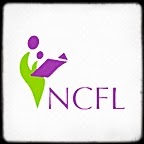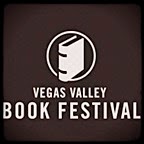The most common commercialized celebration of Banned Books Week is to create a display of the top ten banned book titles or top ten banned book classics (for sale), thereby making this week sometimes feel more promotional than purposeful. And while this celebration can prove useful in raising awareness or discussing ignorance, it's easy to forget these top ten lists come from a pool of more than 300 titles targeted for much bigger, broader and diverse reasons than we like to think.
This is one of the reasons I appreciated the article penned by Donald Parker that addressed some of the myths and realities of censorship. He cut to the heart of a bigger matter, reminding readers that not all banned books are challenged by conservatives, nor are they confined to school libraries and classrooms, nor are they classified as young adult fiction in an increasingly less tolerant world.
The truth is that censorship is a national problem without any real geographical, demographical, or socio-polictial preferences. People who seek to ban books are young and old, rich and poor, left and right, and live from one coast to the other. When you take a closer look at them, it's exactly as Ray Bradbury once called it in Fahrenheit 451 — whereby "minorities, each ripping a page or paragraph from a book, until one say the books were empty and the minds were shut and the libraries closed."
Eight Articles That Cut Past The Top Ten Lists And Aim At The Elephant.
1. Too Graphic? 2014 Banned Books Week Celebrates Challenged Comics by Lynn Neary. Neary catches up with Jeff Smith, author and illustrator of the popular series Bone, who was shocked to find out his series was named one of the top ten most frequently challenged books in America. Censors typically cite violence, racism, and a political viewpoint.
2. Costco Denies Political Motive For Pulling D'Souza's Book by Jerome R. Corsi. Corsi recaps the recent attempt by Costco to pull a book critical about Barack Obama from its stores. The big box store claimed the decision was made because of poor sales despite showing up on the New York Times bestseller list. Costco is a supporter of Obama and the Priorities USA super PAC.
3. Riverside: "Fault In Our Stars" Banned From Middle Schools by Suzanne Hurt. Hurt covers the best intentions of parent Karen Krueger to remove the book or only make it available for checkout with parental consent in a middle school library because it includes references to two teens having sex. When several members of the school committee agreed that the teen love story was inappropriate for that age group, it pulled the book and would not allow other schools to purchase it.
4. Confronting My Temptation To Ban Books by Paul Brandeis Raushenbush. Raushenbush raises an interesting point in asking people to skip past the top ten mot banned books in America, which he says pose no discernible threat, and challenge any anti-ban convictions by stocking library shelves with "recruitment propaganda from ISIS, or books and essays that perpetuate systemic racism, or sexist literature that denigrates women..."
5. America's First Banned Book And The Battle For The Soul Of The Country by Jim Miller. Miller takes a fresh look at banned book week not by being current but by looking backward. His article touches on the sensitive content of the New English Canaan by Thomas Morton, published in 1637. The book itself was put in the midst of two colonies clashing over ideas — specifically between Puritans and those "other" untamed colonists.
6. School Accused Of 'Purging' Christian Books by Todd Starnes. Starnes runs down the true account of a public charter school in Temecula, California, that stripped its libraries of any book with a Christian theme or by a Christian author. This included The Hiding Place by Corrie Ten Boom, which is a survivor story about a Christian family that helped Jews escape the Holocaust.
7. How Does Banning A Book Work? by Cristen Conger. Conger takes deep dive into the process of banning a book, including the legal precedence that dates back to the furthest reaches of literary history, which includes the work of Socrates in 399 B.C. Today, despite the U.S. Supreme Court already ruling that a book or periodical must be "pervasively vulgar" to constitute adequate ground for banning, people continue to challenge books for one reason or another.
8. America's Most Surprising Banned Books by Theunis Bates and Lauren Hansen. Bates and Hansen put together a list last year unlike most of the lists you will see this week. They told the story of thirteen titles and why someone sought to ban them. One of the more dubious mentions includes Brown Bear, Brown Bear, What Do You See because someone mistook author Bill Martin Jr. for an obscure Marxist theorist who had the same name.
Why The Elephant Is Gray And Books Will Continued To Challenged.
It's mostly easy for readers and authors and libraries and booksellers to point at the most commonly challenged books in America last year and laugh at the reasons. But when you look beyond the list and consider the bigger picture, you can pinpoint a portrait of what Americans are wrestling with today. Look even deeper and find bigger questions being asked every time books are challenged.
Should books with religious viewpoints be allowed in schools (and is it a religious viewpoint not to have them)? Do parents have the right of oversight by minimizing the accessibility of some books? Is there an appropriate age limit for certain content (and if so, then who decides)? Are depictions of racism part of the problem or part of the solution?
Does expressing sexuality breed tolerance or temptation? Should booksellers be forced to sell all books or only those they agree with and support? Are history books beginning to exploit the power of complaint and using emotional bribery to invent ever increasing levels of social guilt? And what about those other books — the ones specifically written to incite, recruit, or defame?
These questions aren't always as easy for everyone as people tend to rally to protect their own beliefs and convictions but generally struggle to protect those they consider in opposition to their own. How about you? Is there a line you won't cross in defense against censorship? Maybe there are many lines.
This is one of the reasons I appreciated the article penned by Donald Parker that addressed some of the myths and realities of censorship. He cut to the heart of a bigger matter, reminding readers that not all banned books are challenged by conservatives, nor are they confined to school libraries and classrooms, nor are they classified as young adult fiction in an increasingly less tolerant world.
The truth is that censorship is a national problem without any real geographical, demographical, or socio-polictial preferences. People who seek to ban books are young and old, rich and poor, left and right, and live from one coast to the other. When you take a closer look at them, it's exactly as Ray Bradbury once called it in Fahrenheit 451 — whereby "minorities, each ripping a page or paragraph from a book, until one say the books were empty and the minds were shut and the libraries closed."
Eight Articles That Cut Past The Top Ten Lists And Aim At The Elephant.
1. Too Graphic? 2014 Banned Books Week Celebrates Challenged Comics by Lynn Neary. Neary catches up with Jeff Smith, author and illustrator of the popular series Bone, who was shocked to find out his series was named one of the top ten most frequently challenged books in America. Censors typically cite violence, racism, and a political viewpoint.
2. Costco Denies Political Motive For Pulling D'Souza's Book by Jerome R. Corsi. Corsi recaps the recent attempt by Costco to pull a book critical about Barack Obama from its stores. The big box store claimed the decision was made because of poor sales despite showing up on the New York Times bestseller list. Costco is a supporter of Obama and the Priorities USA super PAC.
3. Riverside: "Fault In Our Stars" Banned From Middle Schools by Suzanne Hurt. Hurt covers the best intentions of parent Karen Krueger to remove the book or only make it available for checkout with parental consent in a middle school library because it includes references to two teens having sex. When several members of the school committee agreed that the teen love story was inappropriate for that age group, it pulled the book and would not allow other schools to purchase it.
4. Confronting My Temptation To Ban Books by Paul Brandeis Raushenbush. Raushenbush raises an interesting point in asking people to skip past the top ten mot banned books in America, which he says pose no discernible threat, and challenge any anti-ban convictions by stocking library shelves with "recruitment propaganda from ISIS, or books and essays that perpetuate systemic racism, or sexist literature that denigrates women..."
5. America's First Banned Book And The Battle For The Soul Of The Country by Jim Miller. Miller takes a fresh look at banned book week not by being current but by looking backward. His article touches on the sensitive content of the New English Canaan by Thomas Morton, published in 1637. The book itself was put in the midst of two colonies clashing over ideas — specifically between Puritans and those "other" untamed colonists.
6. School Accused Of 'Purging' Christian Books by Todd Starnes. Starnes runs down the true account of a public charter school in Temecula, California, that stripped its libraries of any book with a Christian theme or by a Christian author. This included The Hiding Place by Corrie Ten Boom, which is a survivor story about a Christian family that helped Jews escape the Holocaust.
7. How Does Banning A Book Work? by Cristen Conger. Conger takes deep dive into the process of banning a book, including the legal precedence that dates back to the furthest reaches of literary history, which includes the work of Socrates in 399 B.C. Today, despite the U.S. Supreme Court already ruling that a book or periodical must be "pervasively vulgar" to constitute adequate ground for banning, people continue to challenge books for one reason or another.
8. America's Most Surprising Banned Books by Theunis Bates and Lauren Hansen. Bates and Hansen put together a list last year unlike most of the lists you will see this week. They told the story of thirteen titles and why someone sought to ban them. One of the more dubious mentions includes Brown Bear, Brown Bear, What Do You See because someone mistook author Bill Martin Jr. for an obscure Marxist theorist who had the same name.
Why The Elephant Is Gray And Books Will Continued To Challenged.
It's mostly easy for readers and authors and libraries and booksellers to point at the most commonly challenged books in America last year and laugh at the reasons. But when you look beyond the list and consider the bigger picture, you can pinpoint a portrait of what Americans are wrestling with today. Look even deeper and find bigger questions being asked every time books are challenged.
Should books with religious viewpoints be allowed in schools (and is it a religious viewpoint not to have them)? Do parents have the right of oversight by minimizing the accessibility of some books? Is there an appropriate age limit for certain content (and if so, then who decides)? Are depictions of racism part of the problem or part of the solution?
Does expressing sexuality breed tolerance or temptation? Should booksellers be forced to sell all books or only those they agree with and support? Are history books beginning to exploit the power of complaint and using emotional bribery to invent ever increasing levels of social guilt? And what about those other books — the ones specifically written to incite, recruit, or defame?
These questions aren't always as easy for everyone as people tend to rally to protect their own beliefs and convictions but generally struggle to protect those they consider in opposition to their own. How about you? Is there a line you won't cross in defense against censorship? Maybe there are many lines.





























